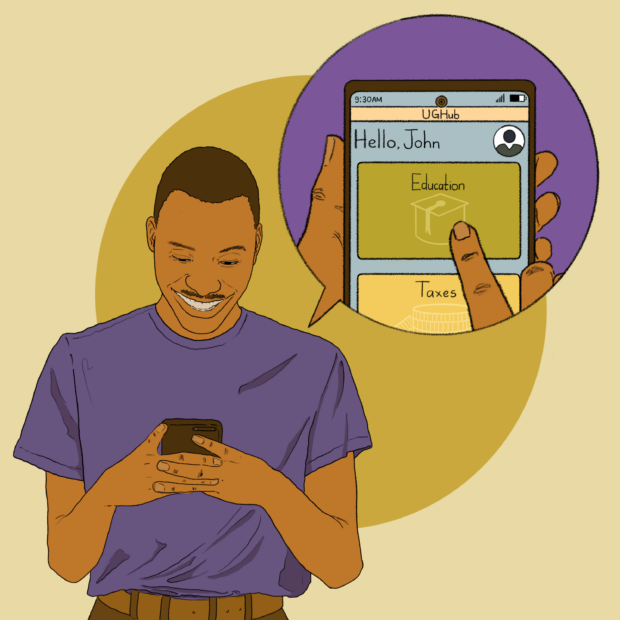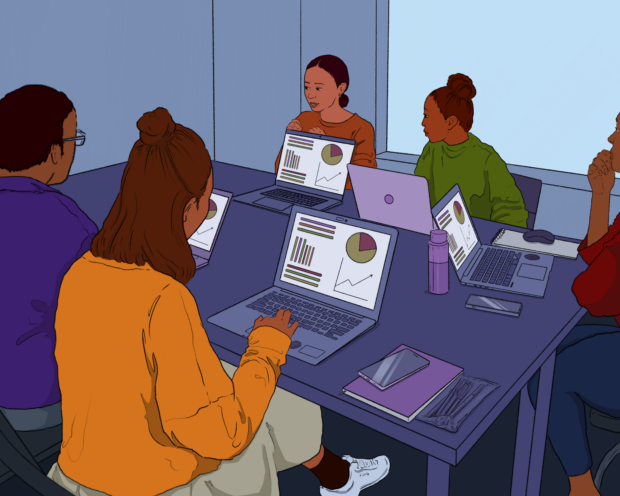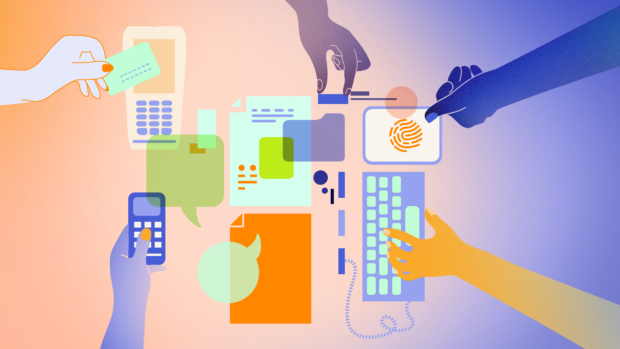In today’s rapidly evolving digital landscape, the importance of citizen portals cannot be overstated. These platforms serve as essential gateways for people to access government services, fostering transparency, trust, and efficiency in governance. Nowhere is the need for such portals more critical than in Africa, where digital inclusion is a driving force behind socio-economic development.
With over 500 million internet users and a population of nearly 1.4 billion, Africa presents an immense opportunity for digital transformation, with the potential to improve the lives and livelihoods of people across the continent. In the past decade, several African nations have experienced sustained growth in internet-driven GDP (iGDP), indicating the potential of digital public infrastructure to spur innovation, drive social and economic growth, and stimulate local opportunities. By 2050, Kenya, Morocco, Senegal, and South Africa are projected to have an iGDP share like that of the United States today, reinforcing the importance of investing in good digital public infrastructure.
As Africa strives towards greater digital inclusion, citizen portals can be a powerful tool to connect people and public institutions.
Citizen portals not only facilitate access to essential services but also empower people by providing them with information, resources, and avenues for engagement. Whether applying for permits or accessing healthcare information, streamlined services enhance efficiency, saving time for both people and government administrators.
Equally as important, they play a vital role in democratising access to information and services, driving social and economic progress, and empowering people to actively participate in governance processes. Here’s why:
- Tackling the Digital Divide. Africa faces unique challenges in digital inclusion, one of the biggest being the disparity in internet access. While mobile penetration is growing, internet access remains uneven. Citizen portals can help bridge this divide by offering services accessible via feature phones, agent networks, or public kiosks. This can help close the gap to essential services and information for people and communities.
- Ensuring localisation of content in multiple languages. Africa is a continent rich with language diversity. There are an estimated over 3,000 languages spoken in Africa today. Citizen portals can provide essential services in relevant languages, breaking down barriers to people accessing and receiving information in ways they can understand. This also serves to foster trust and participation within local communities, which is critical to building Africa’s inclusive digital future.
- Enabling affordability and accessibility. Many people living in remote areas often face challenges in accessing physical government offices. Vast distances between villages and administrative centres can significantly hinder access to essential public services. Citizen portals allow rural and urban populations alike to engage with relevant public services. The affordability of digital channels can make them an attractive alternative.
However, the journey towards accessing effective digital services in Africa is not without its challenges.
It is clear that citizen portals, when designed to prioritize trust and participation, can be incredible drivers of digital inclusion. But, at the same time, existing challenges, if not addressed, could hinder these platforms from reaching their full potential. These include:
- Privacy concerns. Today, there is growing awareness around the importance of protecting personal information online, with many individuals becoming more cautious of sharing their data without robust safeguards in place. This concern is particularly prevalent among those who are data literate and understand both the potential risks and benefits of data sharing.
- Digital and data illiteracy. In contrast, a significant portion of the population lacks data literacy, which limits their understanding of how their data may be used or misused and impedes their ability to practice agency over their personal information. This gap in knowledge and trust is a critical barrier to the effective and safe use of digital services.
- Government bureaucracy. Entrenched government bureaucracy and resistance to change can hinder people-centric digital transformation. These initiatives can prove difficult to implement, as they often require significant shifts in policy and practice, demanding flexibility and innovation from traditionally rigid governmental systems.
- A deepening data divide. The digital divide, though decreasing, has resulted in an emerging data divide. This gap threatens to deepen existing inequalities, further disadvantaging those who are not able to access – and benefit from – data. This divide not only affects people’s ability to participate fully in the digital economy, but also perpetuates marginalisation and exclusion.
To effectively address these challenges – and foster an environment conducive to effective citizen portals – governments, civil society, and the private sector must take collaborative action. This entails not only advancing connectivity to bridge the digital divide but also prioritising initiatives to enhance digital literacy, bolster cyber security measures, and cultivate a culture of innovation and collaboration in the delivery of services to people. Additionally, relevant actors must advance initiatives that maximize existing infrastructure – where connectivity exists – and actively reduce the usage gap, ensuring that more individuals can benefit from available digital resources.
While many countries are grappling with these foundational challenges, there are notable success stories in certain areas where innovative approaches have proven successful. Rwanda’s citizen portal, IremboGov, could serve as one reference model for Africa. Launched in 2015, IremboGov offers over 100 services, including business registration and land transactions. The platform’s user-friendly design and robust backend demonstrate the delicate balance between technology and citizen needs. Accessibility and efficiency are prioritised as part of IremboGov, which has made government services available 24/7. Citizens can conveniently apply for passports, pay utility bills, and register businesses online, which has led to a significant reduction in paperwork and waiting times, thereby transforming citizen experiences for the better.
While many African governments have successfully developed citizen portals, IremboGov’s work stands out due to a few unique aspects. Notably, their innovative agent model allows citizens who may lack internet connectivity or digital skills to access government services through a trusted intermediary. For example, this has helped farmers to register their land more easily. Additionally, IremboGov’s successful public-private partnership model has ensured sustainability and adaptability.
IremboGov, and other citizen portals such as UGHub in Uganda and Ghana.Gov in Ghana, could serve as different examples for countries across Africa as they undertake their digital transformation journeys.
Peer learning between governments can provide an essential platform to help drive effective citizen portals.
Yet, because these platforms are never one-size-fits-all, peer learning is crucial to help countries best design, implement, and govern systems for their unique situation. Sharing insights, knowledge, and best practises can help countries learn from the successes – and avoid the pitfalls – of others. And help countries across Africa to advance collectively, fostering a more inclusive and prosperous digital future for all.
In collaboration with Smart Africa, the Digital Impact Alliance (DIAL) organised a peer learning workshop in late March, focused on citizen portals and government e-services. This gathering convened senior government officials across 9 African states, offering them a platform to exchange insights and discuss experiences. The workshop not only fostered knowledge-sharing in areas such as technical solutions, policy frameworks, and capacity building, but also facilitated collaboration among nations striving to enhance digital governance and citizen engagement.
At the peer learning workshop, there were many key insights that came out of discussions spurred by IremboGov’s model:
- Participatory policy processes are key. IremboGov’s success was partly due to extensive consultations with citizens and government agencies throughout the design process, ensuring the platform met their needs and instilled trust. Effective citizen portals require inclusive policymaking processes that involve diverse stakeholders, ensuring that the platform truly meets the needs of its users.
- Technology decisions come with trade-offs. IremboGov initially prioritised accessibility through USSD alongside web-based access, recognising that not all citizens had smartphones. This illustrates the need for adaptable technology choices that cater to local infrastructure and user capabilities because no single technology solution is perfect for every context. Deliberate decision-making is crucial to balance factors like cost, scalability, and user-friendliness.
- Content adaptability is crucial. The content and interface of citizen portals must be adaptable to different linguistic and cultural contexts to ensure equitable access and engagement. IremboGov’s platform supports French, English and Kinyarwanda, the three languages widely spoken in Rwanda.
- Firsthand learning is Invaluable. The workshop’s field visit to the Irembo campus and direct interaction with Irembo staff highlighted allowed participants to see how these principles translated into a user-friendly platform, efficient service delivery, and ultimately, a positive impact on citizen’s lives.
When it comes to positive digital transformation, Africa has enormous opportunities. The key is effectively harnessing them.
By leveraging its creativity, drive, and innovative spirit, Africa can foster a digital future that not only spurs development, but does so in a way that is inclusive, trusted, and equitable. Citizen portals are a powerful tool in achieving this vision. While no single innovation can solve every challenge, creating robust citizen portals is a foundational – and critical – step countries can take towards realising these goals.
These platforms, when informed by effective peer learning, are not just technological implementations; they are pillars of empowerment, inclusion, and efficiency, enabling wider reach of public services while ensuring that no one is left behind.







